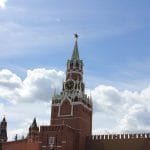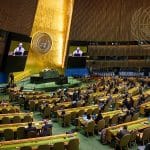The Netherlands announced on December 2 that it will accept Romania and Croatia’s joining the EU’s special passport-free Schengen Zone but intended to block Bulgaria’s admission. Schengen Zone rules require unanimity on the question of admitting new members; Romania also ultimately failed to gain unanimous approval to join.
Final decisions on new Schengen members were approved on December 8-9 at the EU Justice and Home Affairs Council meeting.
Dutch Prime Minister Mark Rutte’s government justified its veto decision by citing Bulgaria’s failure to achieve satisfactory results in the fight against corruption and organized crime, a deep-rooted issue across most of Southeastern Europe that few countries have addressed with adequate success and a concern that many EU member states fail to acknowledge when called on to approve various EU programs and packages.
Austria was said before the meeting to be leaning towards approving Croatia only for Schengen Zone membership, leaving both Bulgaria and Romania outside of the zone. Ultimately, Austria’s more conservative views prevailed at the EU meeting, meaning that only Croatia has been approved to join the Schengen Zone on January 1, 2023.
It is up to the member states
The European Commission is almost always a non-factor in these matters until a crisis develops, making it essential that member states take more vigilant positions early on to prevent unjustified giveaways as is so often the case in intra-EU diplomacy.
The European Commission and European Parliament are on the record as supporting the admission of Romania, Bulgaria and Croatia to the Schengen Zone; there are far too few cases of these organizations performing proper screening functions regarding rule of law and corruption, and there are also cases of the Commission pressuring member states to accept its assessments.
Bulgaria reacts harshly
Bulgaria’s reaction to the news was harsh, as to be expected. The country is living through a period of extended political instability, with four elections in the past 18 months, no new government yet in sight after the October elections, and had been waiting for positive news.
“Instead of European solidarity, Bulgaria receives cynicism,” Bulgarian President Rumen Radev posted on social media. “Our efforts do not deserve neglect! Our efforts do not deserve insults,” Caretaker Interior Minister Ivan Demerdzhiev claimed.
Bulgarian Caretaker Justice Minister Krum Zarkov claimed the Netherlands was acting “unreasonably from a technical, legal and political point of view.”
According to both Radev and Demerdzhiev, Bulgaria’s caretaker government is making “extraordinary efforts to ensure the security” of European Union borders.
Important strategic decision
The veto plan by The Netherlands (an Austria) is strategically important as this decision delays putting a contiguous Schengen Zone land border in direct contact with Turkey.
Currently, illegals from non-Schengen countries can enter Schengen member Greece from Turkey through a heavily fortified border zone or by sea but must still face border controls before they reach other Schengen countries by air or sea from Greece. If Bulgaria and Romania were to join, there would only be one land border to protect the Schengen heartland, already under intense pressure from waves of third-country migrants flying to Serbia’s capital Belgrade to make attempts at crossing into Hungary.
The Schengen Zone does not completely overlap the European Union. Bulgaria, Romania, Croatia, Ireland and Cyprus are the only EU countries that are not current Schengen members, while non-EU countries Iceland, Norway, Switzerland and Liechtenstein have signed up.








